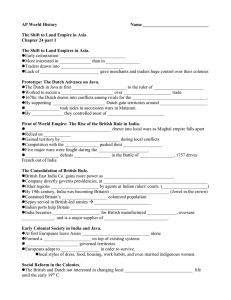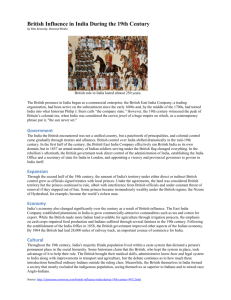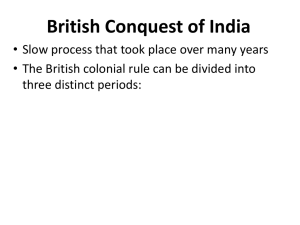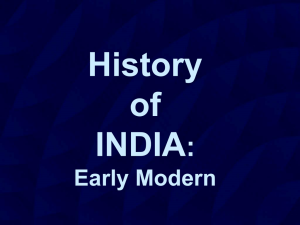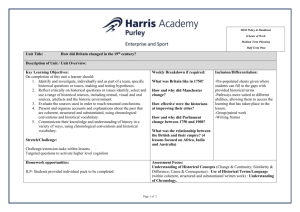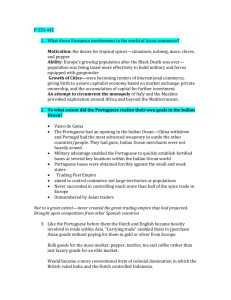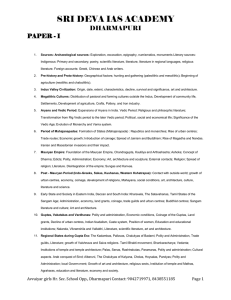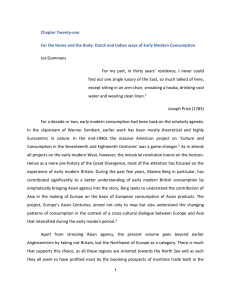Read and answers these questions due Monday October 19th 541
advertisement
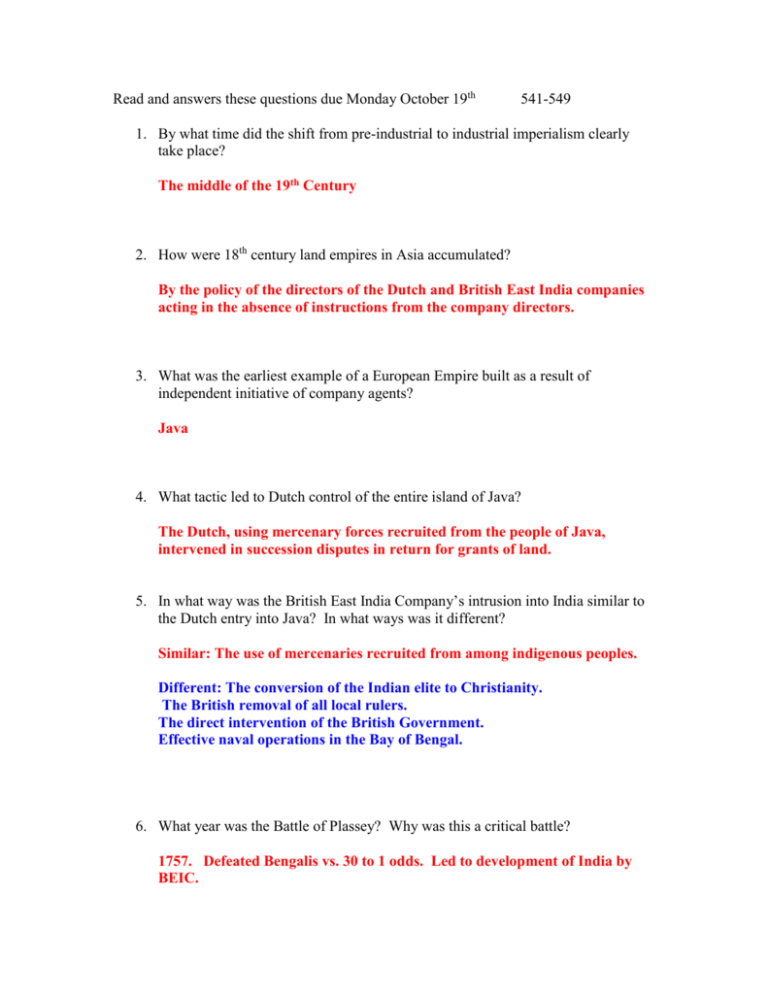
Read and answers these questions due Monday October 19th 541-549 1. By what time did the shift from pre-industrial to industrial imperialism clearly take place? The middle of the 19th Century 2. How were 18th century land empires in Asia accumulated? By the policy of the directors of the Dutch and British East India companies acting in the absence of instructions from the company directors. 3. What was the earliest example of a European Empire built as a result of independent initiative of company agents? Java 4. What tactic led to Dutch control of the entire island of Java? The Dutch, using mercenary forces recruited from the people of Java, intervened in succession disputes in return for grants of land. 5. In what way was the British East India Company’s intrusion into India similar to the Dutch entry into Java? In what ways was it different? Similar: The use of mercenaries recruited from among indigenous peoples. Different: The conversion of the Indian elite to Christianity. The British removal of all local rulers. The direct intervention of the British Government. Effective naval operations in the Bay of Bengal. 6. What year was the Battle of Plassey? Why was this a critical battle? 1757. Defeated Bengalis vs. 30 to 1 odds. Led to development of India by BEIC. 7. The British East India company victory over the French gave them direct control of what area? Bengal. 8. What were the handicaps faced by Indian princes in defending their kingdoms from the British? The willingness of Indians to serve in the British armies. The continued warfare among the Indian Princes. The lack of a sense of national identity in India. Strength of the British Military. 9. What were the reasons why India became the pivot of the great British Empire? British interest in global trade. The size of the Indian land army. The existence of raw materials useful to British Industries. The utility of Indian Ports in maintaining sea power. 10. What was the common European interaction with indigigenous peoples prior to 1850? Mixed marriages between European males and indigenous female became widely accepted, especially in Java. 11. Who were the representatives of the British East India Company who went out to secure sudden wealth, often through corruption? Nabobs 12. What English religious movement was critical to the social reform movement in the British Empire by the beginning of the 19th century? Evangelical 13. Jeremy Bentham and James Mill were leaders of what philosophical movement that supported social reform in the colonies? Utilitarianism 14. During what decade did European countries reduce much of Africa, Asia, and the Pacific to colonial possessions? 1870’s 15. Which nations did not enter the competitive race for colonial empire and Industrial supremacy after 1870? Spain
